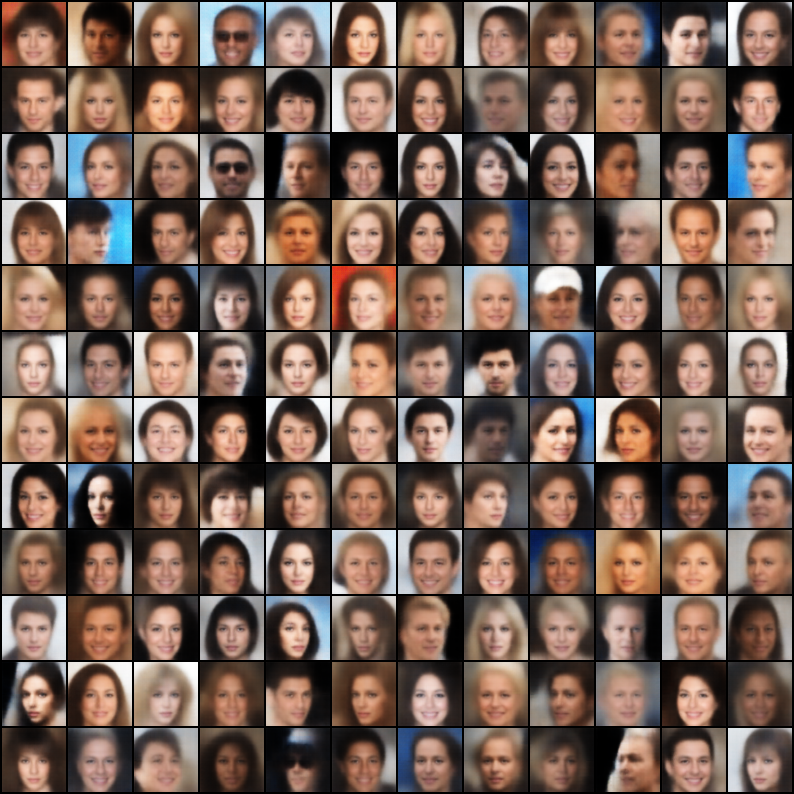Importance Weighted Autoencoders
The variational autoencoder (VAE; Kingma, Welling (2014)) is a recently proposed generative model pairing a top-down generative network with a bottom-up recognition network which approximates posterior inference. It typically makes strong assumptions about posterior inference, for instance that the posterior distribution is approximately factorial, and that its parameters can be approximated with nonlinear regression from the observations. As we show empirically, the VAE objective can lead to overly simplified representations which fail to use the network's entire modeling capacity. We present the importance weighted autoencoder (IWAE), a generative model with the same architecture as the VAE, but which uses a strictly tighter log-likelihood lower bound derived from importance weighting. In the IWAE, the recognition network uses multiple samples to approximate the posterior, giving it increased flexibility to model complex posteriors which do not fit the VAE modeling assumptions. We show empirically that IWAEs learn richer latent space representations than VAEs, leading to improved test log-likelihood on density estimation benchmarks.
PDF Abstract


 MNIST
MNIST